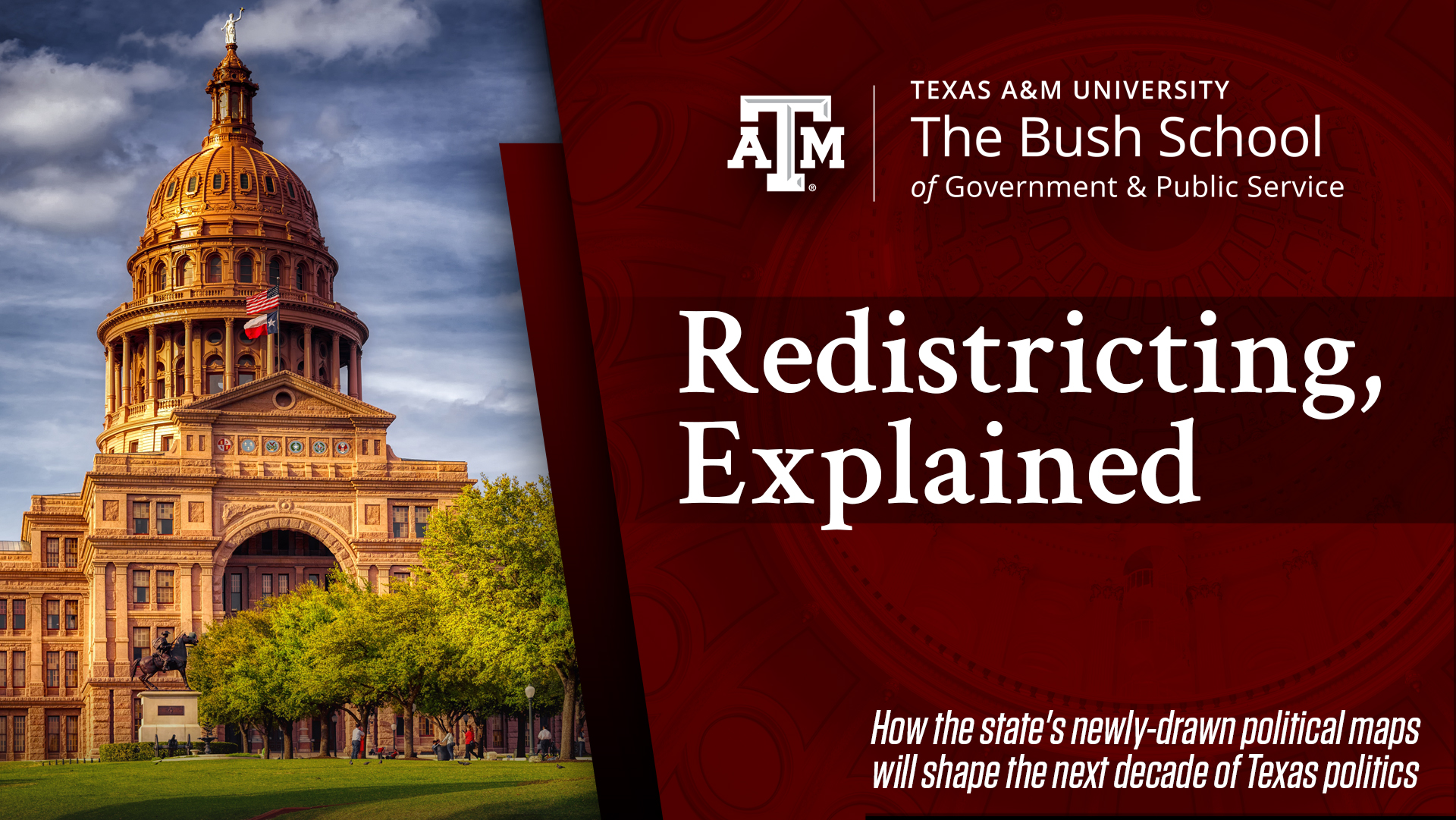
A Texas A&M expert of state and local politics explains how the state’s newly-drawn political maps – which are being challenged by the U.S. Department of Justice – will shape the next decade of Texas politics.
By Caitlin Clark
This article originally appeared in Texas A&M Today on Dec. 17, 2021
Every 10 years, each state is required to redraw the boundaries of its congressional and state legislative districts in a process known as redistricting. The district you live in determines who you can elect at the national, statewide and local level, and the way the maps are drawn often decides which party controls national and state legislative bodies.
This makes the outcome of redistricting “tremendously important,” said Ann Bowman, professor and the Hazel Davis and Robert Kennedy Endowed Chair and Government and Public Service at Texas A&M University’s Bush School of Government and Public Service.
State and congressional elected officials create policies and vote on laws that have a significant impact on many aspects of Americans’ daily lives, she said. Bowman explains what Texans should know about why redistricting matters and resulting legal battles to watch for.
How The Process Works
Each state handles redistricting differently – about a third use a nonpartisan or bipartisan commission, while the rest, including Texas, allow their legislatures to decide how to draw districts.
The goal is to divide the state into districts of roughly equal populations. Bowman said all states must adhere to the Voting Rights Act of 1965, and each district should be drawn to be contiguous and relatively compact.
A relevant example: an early version of Texas’ maps split Bryan and College Station into two different congressional districts, which would have given the adjacent twin cities separate representation. While this didn’t make it into the final map approved by Gov. Greg Abbott, Bowman said it reflects the importance of keeping communities and existing political subdivisions intact.
It’s an inherently political process, she said, and in states where the state legislature handles redistricting, the way the maps are drawn usually reflects which party is in power. In Texas, “Republicans definitely call the shots and drew a map that benefits them,” Bowman said, but in some instances historically blue districts were made even bluer.
She said the outcomes of the redistricting process can also affect whether incumbents choose to seek re-election depending on how the lines are drawn. Elected officials may determine their district will be less favorable to them, which can result in a party flip – Bowman points to a longtime Democrat in South Texas who switched parties in November.
“Another component in the process is the idea of preserving communities of interest, like cultural or racial or ethnic communities,” Bowman said. “That’s where a lot of the conflict and different perspectives on this come in.”
Legal Challenges
Earlier this month the U.S. Department of Justice sued Texas over the state’s redistricting plans, saying they put Latino and Black voters at a disadvantage.
The lawsuit, which was filed by the department in the Western District of Texas, says the plans violate Section 2 of the Voting Rights Act, which requires state voting laws to provide eligible voters with equal opportunity in the political process.
According to the Dec. 6 announcement of the lawsuit, Texas’ redistricting plan is in violation of Section 2 because it “deliberately minimizes the voting strength of minority communities,” and has the “discriminatory purpose” of denying or minimizing voters’ rights based on their race or ethnicity.
The maps were already facing several legal challenges, and Bowman said Texans can expect to see more. Redistricting plans are regularly challenged in Texas, she said, and in 2011 they were rejected by the federal government.
“It’s really determining party strength in policymaking over the next 10 years, so it’s something worth fighting over,” Bowman said.
